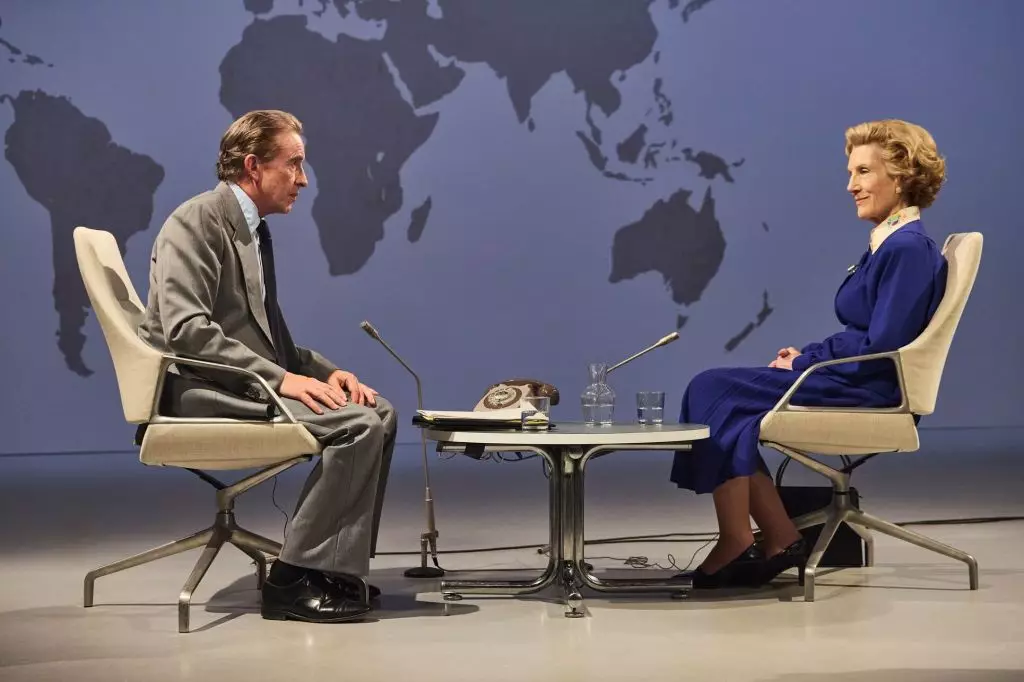The upcoming Channel 4 drama ‘Brian and Maggie’ presents an engaging blend of history and performance, offering a fresh perspective on one of the most significant political interviews in British history. With Harriet Walter taking on the formidable role of former Prime Minister Margaret Thatcher, opposite Steve Coogan as the interviewer Brian Walden, this two-part series promises to delve deep into the complexities of power, politics, and media. The show draws parallels with the iconic Frost/Nixon interview, suggesting that it aims to explore not just the events of the past, but also their resonating impact on contemporary political discourse.
Set during Thatcher’s last television interview, ‘Brian and Maggie’ is heralded for showcasing a dramatic turning point in Thatcher’s career, a moment that not only solidified her legacy but also acted as a catalyst for her eventual resignation. The interview, which lasted a mere 45 minutes, became a national sensation and is steeped in controversy and analysis. Through this reenactment, the writers James Graham and Stephen Frears appear keen to emphasize the weight that such political exchanges carry in shaping public perception and influencing political developments.
In the wake of today’s rapidly changing media landscape, Channel 4’s exploration of this historical moment poses an intriguing question: has the decline of in-depth political interviews jeopardized the fabric of modern democracy? The series is reportedly inspired by Rob Burley’s book, ‘Why Is This Lying Bastard Lying to Me’, which implies that the narrative will dissect not just the confrontation itself, but also the broader implications of how politics is communicated to the public in an era dominated by snippets and soundbites.
Produced by Coogan’s Baby Cow Productions, ‘Brian and Maggie’ marks an ambitious project for Channel 4, being the first drama commissioned by Ollie Madden, who was recently appointed head of drama and film. This series not only highlights the dynamics between politics and the media but also shows a commitment to reinvigorating political drama on television. With a robust production team including executive producers like Sarah Monteith and Rupert Majendie, the creative vision appears to be well-supported by seasoned talents with a proven track record in the industry.
Ultimately, ‘Brian and Maggie’ serves as an artistic lens through which viewers may assess the complex interplay between authority and storytelling. In a world where political interviews are increasingly rare—often substituted with quick press conferences or calculated social media posts—this series could reignite interest in the importance of nuanced political discourse. As the drama unfolds, audiences may find themselves reflecting on not only Thatcher’s legacy but also the direction of political narratives in today’s media-saturated society. The series thus stands as a cultural commentary poised to spark dialogues about the role of journalism in safeguarding democratic values and the continuing relevance of political interviews in shaping public consciousness.
